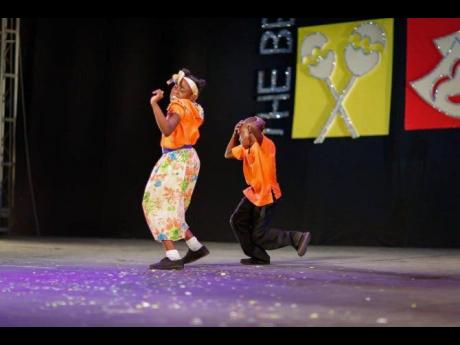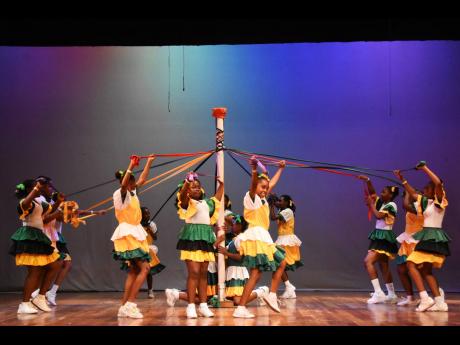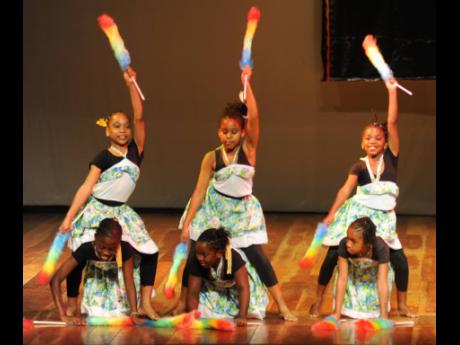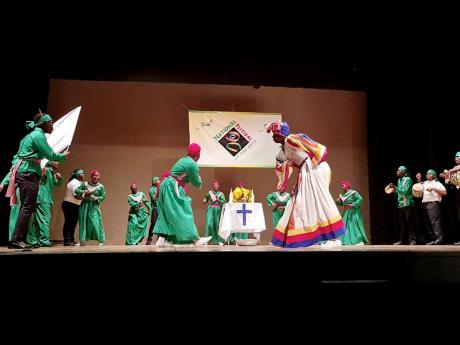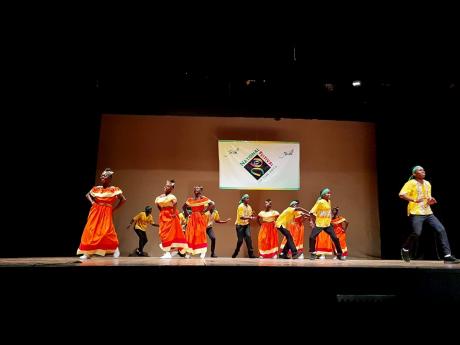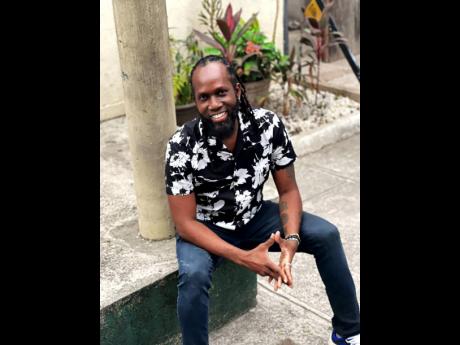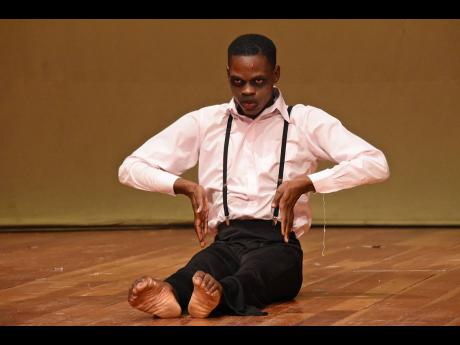‘Traditional folk alive and well in popular culture,’ says Michael Holgate
Lauds the JCDC for their mission
World-renowned choreographer, dancer, actor, singer and writer, Michael Holgate, said the traditional folk forms still play a dominant role in shaping Jamaican culture. He notes, “Traditional folk is not dead, it can’t be dead because … it’s alive and well in our popular culture.”
Holgate, the head of the Phillip Sherlock Centre for the Creative Arts at The University of the West Indies, was an adjudicator at the Traditional Folk Forms National Finals held recently at The Little Theatre in St Andrew. The event kick-started the Jamaica Cultural Development Commission’s (JCDC) annual Festival of the Performing Arts National finals.
Participants are judged on several criteria to assess the authenticity of the performances in the categories of quadrille, ring games, maypole, Kumina/Congo, Revivalism, nine night/wake, gerreh, Dinki Mini; zella, tambu, jonkunnu or John Canoe, burru, Ettu, bruckins party, Maroon dnce and medley of folk forms. Participants vary in ages, from four-year-olds to adults 65 years and older.
“When I am looking at gerreh, I’m seeing all the newest dancehall moves ... that’s where it is coming from, and so the traditional folk forms are not dead and it is because of them that these artistes and nowadays dancers … can put it out there as our popular culture that is putting Jamaica on the map all around the world,” Holgate explained.
Holgate, who has spent more than 20 years exploring the world of theatre, dance, music, film, and writing, also teaches Caribbean folk and traditional dance at the Edna Manley College of the Visual and Performing Arts. He noted that in addition to the authentic exposure to the different folk forms, participants learn useful soft skills that “can’t be bought at the shop”.
“They are learning musical appreciation, creativity, cultural appreciation, community skills, leadership skills … spirituality, support, role play, presence, how to show up, rhythm, body awareness, professionalism, team work, nonverbal communication skills, partnership skills, spatial awareness, physical awareness, they are learning how to count and how to be in tandem with other persons, synchronising your steps with others, and they are learning how to coordinate and they are learning about projection of energy.”
Two other adjudicators and practitioners, Lety Cross and Hazel Ramsay McClune, agreed with Holgate and stated that most of the traditional folk forms that are presented onstage are learned through real-life experience.
“Some of the folk forms are originally from different parishes across the island. If you live in a particular parish then you would have been exposed to certain folk forms and learn them in their most authentic form. For example, Revival is one form that is all around Jamaica. The Revival performances that you see onstage are a representation of Revival churches. Ring games are also learned most times through real-life experiences,” Cross said.
She recounted that in her days, they did not have televisions so to paststhe time they played ring games that involved playful movements to catchy songs. “Children still play some of these ring games today during their lunch break.”
Teacher at the Liberty Learning Centre in Portland, Lorianne Welsh, expressed concern that although the traditional folk forms are still being practised in parishes and performed at JCDC competitions and events, many schools do not include them in the curriculum. Some of her students, aged fouryears to 12 years, participated in various categories including maypole and quadrille-ballroom.
When asked about the relevance and role of the JCDC in helping to promulgate Jamaica’s traditional folk forms, Holgate said, “Two of the most important institutions in Jamaica right now are Boys’ and Girls’ Champs and JCDC. The fact that at a high school level we have people who are performing in this massive all-island sport competition, that the athletes have to go through …[similarly], these artistes are learning from kindergarten, primary, prep, high school and in communities, and reinforcing the culture and competing. The JCDC’s mandate is, Unearthing, Developing, Showcasing, Preserving, the best of Jamaica’s culture. And if you are preserving the best of Jamaica’s culture and they are, then what you are going to get is Jamaicans being their best and doing their best and that is why we should show up on the world stage in the way that we do … I give a lot of that tribute to the JCDC.”
The National Finals of the Festival of the Performing Arts resume on Monday, April 17 with the speech finals which will run for three days.
The other scheduled finals are:
Music- April 20, 21, 24 and May 3
Drumfest- April 22
Drama- April 25 – April 27
Dance- April 28 & May 1-2
The music, drama and dance finals will take place at the Little Theatre in St Andrew, while Drumfest will be held at the Ranny Williams Entertainment Centre also in St Andrew..
All events are free of charge.

